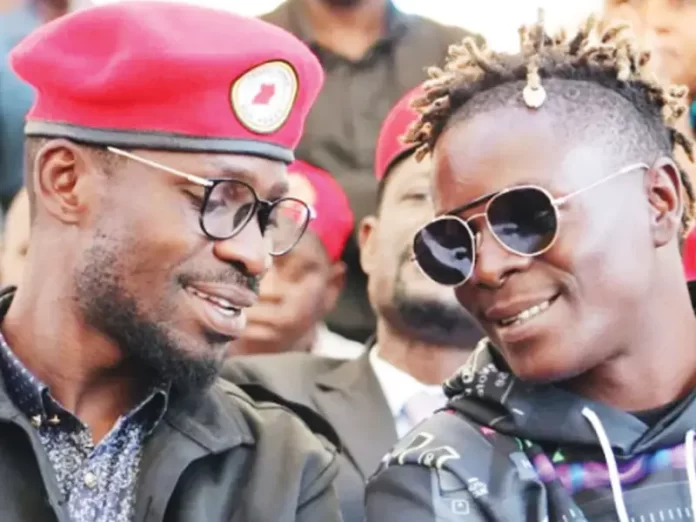Music has always been a powerful tool for expressing emotions, connecting people, and inspiring change. Throughout history, musicians have used their art to engage in political activism, shed light on social issues, and advocate for justice.
During the NRA bush war, music was very instrumental in boosting morale and boosting the fighters on the frontline during hopeless situations. The power of music in political activism lies in its ability to connect with people on an emotional level.
A revolutionary struggle is a period of battling with ideas and morality, which are the biggest attractions to the population to join revolutionary causes. Since the inception of the NUP as an instrument for causing political change in Uganda’s politics, the question of why and how change should happen has been kept far away from the NUP leadership.
Whether it is a one hundred or one thousand-song project without a sense of direction and with questionable morality, it remains background noise. Fela Kuti (often referred to as the king of afrobeat) acts as a nasty artist who castigated the Buhari and Babanginda military regimes, but without the actual definition of the revolution. He further formed his own political party and stood for president, but failed miserably.
Now, my brother King Saha has perceived the term revolution in a bad way because mere musical lyrics without direction cannot change a regime that has nurtured intellectuals who are not even ready for any succession projection.
More so, the question of morality considering my brother from the revolutionary songs project is also questionable—from being a drug addict to being violent and often seen encouraging lawlessness in society and attracting marauders.
Finally, it’s not a thought or prediction, but rather the reality that Saha is targeting the National Unity Platform (NUP) wave and fake revolutionary music to gain the party’s ticket for Member of Parliament for Busiro North constituency in Wakiso district. But there is nothing like music changing a regime.
The NUP top leadership has kept itself in internal rifts and bad blood between itself and party members, which has disabled it from being near to causing regime changes but rather turned to mere internal changes, for example, the rift between former Leader of Opposition in Parliament, Mathias Mpuuga, the Busoga coordinator, Moses Bigirwa, members of the DP block, and foot soldiers, which all have attracted bruises in the party and massive discord of the revolution.
Bigirwa recently formed his own pressure group in Busoga, and I bet my head on Mpuuga remaining in the NUP alongside people like Abed Bwanika, Joyce Bagala, Bashir Kazibwe, Allan Sewanyana, and DP block members. More so, other foot soldiers have been seen massively deserting the ruling party.
At the end of the revolution, the NUP leadership might change itself instead of changing the regime. NUP, just like FDC, is now a laughing stock amongst the political elite, the population, and the international community, with factions already and several factions in waiting.















